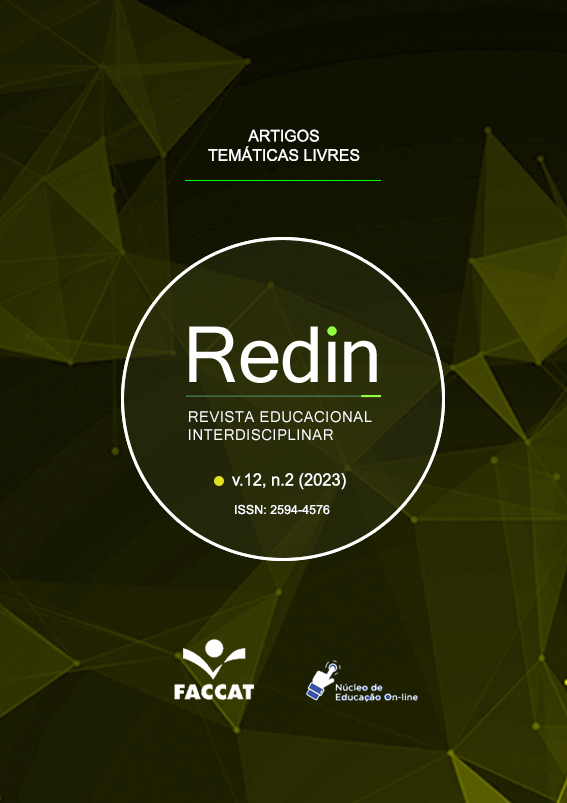Learning artificial intelligence algorithms in the metaverse
Abstract
Institutions in several countries are proposing to include Artificial Intelligence in school curriculum at all levels of education. However, few results of its practical applications are found in the literature. The objective of this article is to present the results of the development and testing of a learning object for the teaching of the concept of algorithms to elementary school students. To this end, a metaverse learning object was developed for teaching algorithms. Fifty-two elementary school students were organized into control and experimental groups. Based on comparative analyses of the results, using the normalized gain in learning of Richard Hake, it can be inferred that the experimental group had a significant improvement in its learning about algorithms compared to the control group.
Keywords: Computation; Artificial intelligence; Metaverse; Digital Culture; Algorithms
References
BAILEY, F.; MOAR, M. The Vertex Project: Children creating and populating 3D virtual worlds. Journal of Art & Design Education, v. 20, n. 1, p. 19-30, 2001.
BRACKMANN, C. P. Desenvolvimento do pensamento computacional através de atividades desplugadas na educação básica. 226 f. Tese (Doutorado em Informática na Educação) - Universidade Federal do Rio Grande do Sul. Porto Alegre, 2017.
ELFAKKI, A.; SGHAIER, S.; ALOTAIBI, A. An Efficient System Based on Experimental Laboratory in 3D Virtual Environment for Students with Learning Disabilities. Electronics, v. 12, n. 4, p. 989, 2023.
HAKE, R. R. Interactive-engagement versus traditional methods: A six-thousand-student survey of mechanics test data for introductory physics courses. American journal of Physics, v. 66, n. 1, p. 64-74, 1998.
HOLMES, W.; BIALIK, M.; FADEL, C. Artificial Intelligence in Education: promises and Implications for Teaching and Learning. The Center for Curriculum Redesign, Boston, MA. 2019.
HOLMES, W; PERSSON, J; CHOUNTA, I; WASSON, B; DIMITROVA, V. Artificial intelligence and education: a critical view through the lens of human rights, democracy and the rule of law. Council of Europe, 2022.
LIN, H.; WAN, S.; GAN. W.; CHEN, J.; CHAO, H,C. Metaverse in education: Vision, opportunities, and challenges. arXiv:2211.14951, p.1-10, 2022. DOI: https://arxiv.org/abs/2211.14951
MCCARTHY, J. Review of The Question of Artificial Intelligence. Annals of the History of Computing, v.10, n.3, p.224-229, 1998.
MIAO, F. K-12 AI curricula: a mapping of government-endorsed AI curricula, UNESCO Publishing. (Online). 2022. Disponível em: https://unesdoc.unesco.org/ark:/48223/pf0000380602/ Acesso em: 17 mar., 2023.
MIAO, F.; HOLMES, W.; HUANG, R.; ZHANG, H. AI and education: a guidance for policymakers. UNESCO Publishing. (Online). 2021. Disponível em: https://unesdoc.unesco.org/ark:/48223/pf0000376709/ Acesso em: 17 mar.; 2023.
OH, J.; HESSEL, M.; CZARNECKI, W.; XU, Z.; HASSELT, H.V.; SINGH, S.; SILVER, D. Discovering reinforcement learning algorithms. In: Proceedings in AI Advances in Neural Information Processing Systems, v. 33, NeurIPS, 2020.
PARSON, E; RE, R.; SOLOW-NIEDERMAN, A.; ZEIDE, E. Artificial intelligence in strategic context: an introduction. UCLA: The Program on Understanding Law, Science, and Evidence (PULSE). Disponível em: https://escholarship.org/uc/item/9c8651s6/ Acesso em: 17 mar.; 2023.
RUSSELL, S.; NORVIG, P. Artificial Intelligence: a modern approach. Hoboken: Pearson, 2020.
TAROUCO, L. M. et al. Aprendizagem e avaliação em um ambiente de Realidade Virtual Cooperativo de Aprendizagem (Projeto ARCA). Revista Brasileira de informática na Educação, v. 6, 2000.
VICARI, R. Referencial curricular inteligência artificial para o Ensino Médio: Inteligência Artificial no Ensino Médio. (Online). 2022. Disponível em: https://www.inf.ufrgs.br/ciars/
WING, J. M. Computational thinking benefits society. In: 40th anniversary blog of social issues in computing, v. 2, p. 26, 2013.


